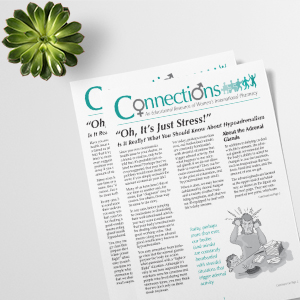Stress and Fatigue Resources
High levels of stress affect the intricate balance of many hormones, from those produced by the adrenal glands (including the “stress hormone” cortisol) to others such as testosterone, estrogens, and the thyroid hormones. The stress and fatigue resources on this page examine some of the interconnected effects of hormones and stress, as well as outline some actions you can take to manage stress and restore balance to the body’s systems.

HYPOADRENALISM
Stressful situations trigger adrenal activity. If the adrenal glands are not allowed to recover, they can become overworked, sometimes to the point of exhaustion.

BOOK REVIEW – ADRENALINE DOMINANCE
There are two reasons for adrenaline to be released: in response to stress, and to ensure that the brain has received enough sugar (glucose).

BOOK REVIEW – ARE YOU TIRED AND WIRED?
Adrenal dysfunction is characterized by a variety of symptoms. For example, high cortisol levels produced by stress may profoundly impact quality of life.

BOOK REVIEW – BURSTING WITH ENERGY
Diminished energy production is the primary cause of many diseases. Chronic fatigue syndrom and other related illnesses are difficult to diagnose and understand.

STRESS-RELATED TINNITUS
A study of 344 patients with tinnitus demonstrated that elevated stress hormones, as well as a break-down product of serotonin, appear to be related to tinnitus.

BOOK REVIEW – THE CHRONIC STRESS CRISIS
Removing stress sources is the key to recovering health. Some stressors may be obvious, while a healthcare practitioner may need to decipher others.

CONTROLLING STRESS PROMOTES HEALTHY AGING
Controlling cortisol and insulin levels are essential for healthy aging, as they increase metabolic stress, leading to health concerns such as and chronic inflammation.

FATIGUE
Not only is fatigue a symptom of many health conditions, it is also a result of lifestyle factors such as poor diet, dehydration, high stress and too little sleep.

HEALTHY SLEEP AND REST
Cortisol is a hormone produced by the adrenal glands in response to stress. Chronic stress may alter cortisol production and lead to sleep problems.

HOLIDAY STRESS AND HORMONES
Learning to manage stress with life style, nutrients, hormones and perception may help restore more balanced functioning to many of the body’s systems.

HORMONES AND EMOTIONAL HEALTH
Thyroid hormones influence glucose levels and the release of stress hormones, two contributors to mood fluctuation. Thyroid deficiency may lead to depression.

HOW STRESS AFFECTS THYROID FUNCTION
Stress may contribute to thyroid dysfunction. Acute stress results in high cortisol levels, which interferes with the conversion of T4 to active T3.

SLEEP
Many different hormones are linked to or related to sleep; a hormone deficiency or imbalance may contribute to exhaustion and other symptoms.

UNCOVERING ADRENALINE TRIGGERS AND THE PULSE TEST
The Pulse Test measures the adrenaline release caused by allergies and sensitivities to foods and chemicals. When adrenaline is released, the pulse rate goes up.

BOOK REVIEW – THE UPSIDE OF STRESS
Dr. Kelly McGonigal argues that stress is not always “bad,” but can benefit health by making us “smarter, stronger and more successful.”

BOOK REVIEW – VENUS ON FIRE, MARS ON ICE
Constant stress causes overproduction of cortisol, which may contribute to emotional instability. The differences in coping with stress may affect relationships.


